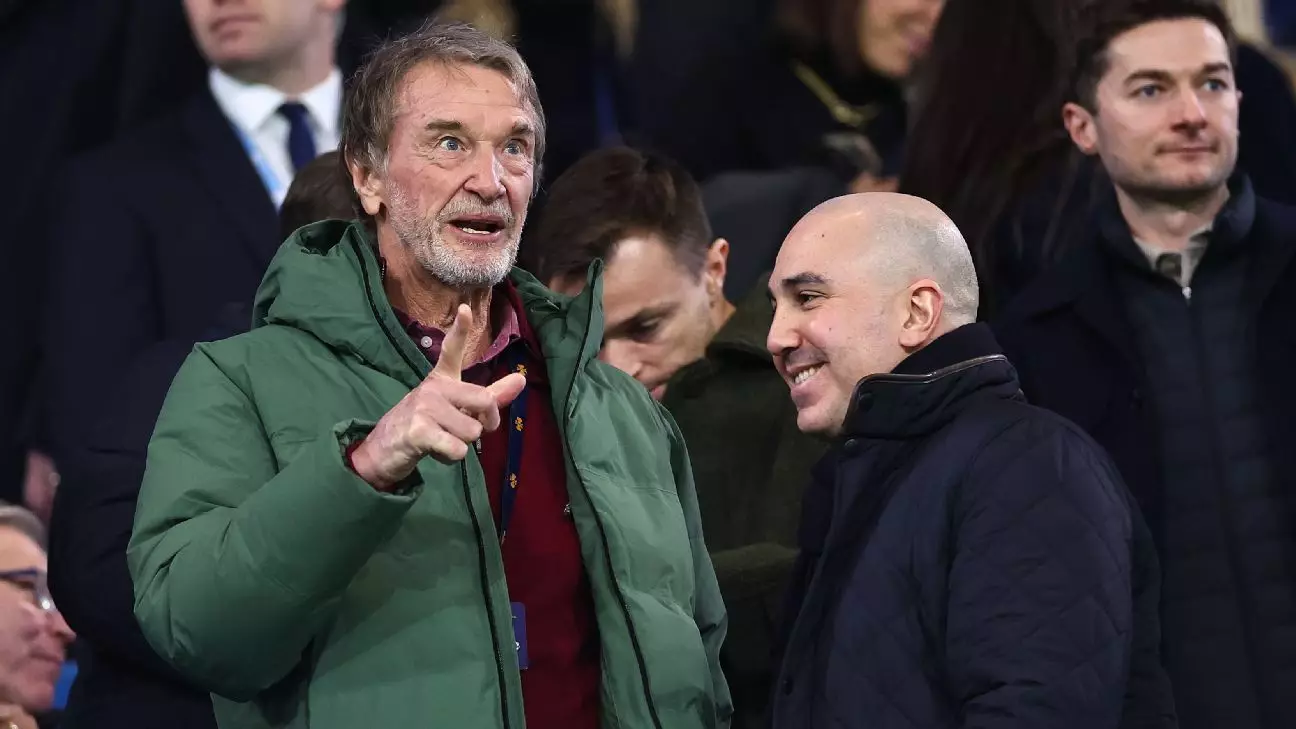Recent filings from the U.S. Securities and Exchange Commission (SEC) have revealed that Sir Jim Ratcliffe, the prominent British billionaire and founder of INEOS, has expanded his ownership stake in Manchester United. The latest investment of approximately £79 million ($99.6 million) has provided Ratcliffe with an additional 1.24% stake in the famous Premier League club, increasing his total holding to an impressive 28.94%. This acquisition is part of a broader agreement made in December, where Ratcliffe had committed £1.2 billion for a 27.7% share. Despite these movements, the Glazer family continues to hold the majority ownership of Manchester United, raising questions about the club’s direction under Ratcliffe’s partial leadership.
In a notable development, sources have indicated that Ratcliffe’s recent capital infusion will not be directed toward the imminent January transfer window. Instead, he intends to allocate these resources across various operational needs within the club. Over recent years, Manchester United has faced significant financial challenges, recording losses exceeding £300 million across the past three seasons. Ratcliffe, perhaps acknowledging the club’s precarious financial state, has initiated cost-cutting measures that have resulted in over 250 redundancies. This approach raises concerns about the long-term impact on the club’s workforce and morale, as elevated financial prudence collides with the need for a revitalized team performance on the pitch.
Despite his expanded role, Ratcliffe has not been immune to substantial criticism. Fans and experts alike have expressed their dissatisfaction with decisions under his stewardship, particularly regarding ticket price increases. This move not only strains the relationship with loyal supporters but also poses a broader dilemma regarding fan engagement and overall club ethos. Furthermore, his apparent neglect of the women’s team has drawn ire at a time when the push for gender equality within sports is gaining momentum. This criticism extends to his decision-making process, illustrated by the hasty extension of Erik ten Hag’s contract mere months before sacking him, alongside the dismissal of sporting director Dan Ashworth shortly after acquiring his services from Newcastle.
As Sir Jim Ratcliffe consolidates his position at Manchester United, the implications of his increased stake remain to be seen. While he brings a wealth of business acumen, the balancing act between fiscal responsibility and sporting ambition poses a significant challenge. With passionate fans, a storied legacy, and recent financial turbulence, the decisions Ratcliffe makes moving forward will undoubtedly shape the trajectory of one of the world’s most celebrated football clubs. His ability to navigate this labyrinth of expectations will determine whether he emerges as a transformative figure or merely another sporadic chapter in the club’s tumultuous history.

